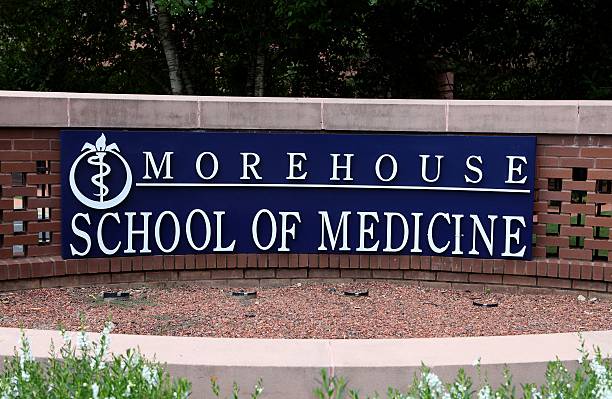
Half a century ago, Morehouse School of Medicine (MSM) was founded with a groundbreaking mission: to reshape medical education and provide quality healthcare to communities historically underserved. From its humble beginnings as a small medical education program to its current status as a global leader in health equity, MSM has remained steadfast in its commitment to innovation, excellence, and service.
A Vision for Transformative Change
The roots of MSM trace back to the late 1960s, when forward-thinking medical leaders recognized the urgent need for a diverse healthcare workforce. With early support from philanthropic foundations and federal funding, the institution was established to provide medical training focused on serving marginalized populations. This vision was brought to life through the leadership of Dr. Louis W. Sullivan, a Morehouse graduate and renowned physician, who set the foundation for MSM’s growth and impact.
A Journey of Growth and Excellence
In 1978, MSM welcomed its first cohort of students, initially offering a two-year medical education program. Within a decade, it had evolved into a fully accredited, four-year medical school, cementing its role as a crucial player in healthcare education. Today, MSM continues to make a profound impact, particularly in Georgia, where a majority of its graduates remain to practice medicine, addressing critical health disparities in both rural and urban communities.
MSM’s research initiatives have expanded significantly, tackling major health challenges in areas such as maternal health, genomics, cancer, and cardiovascular disease. Through cutting-edge scientific advancements and community-based healthcare solutions, the institution has emerged as a leader in health equity and disease prevention.

A Historic Celebration
Morehouse School of Medicine celebrated its 50th anniversary at the Georgia State Capitol on Thursday, Feb. 6, 2025. The milestone comes amid the federal government’s executive orders against diversity, equity, and inclusion policies across the country.
President and CEO Valerie Montgomery Rice, MD, FACOG, spoke at the event, reaffirming the school’s mission. “Diversity, equity, inclusion as it relates to health is not a political term. When we talk about health equity at Morehouse School of Medicine, we’re talking about giving people what they need when they need it and the amount they need to reach their optimal level of health,” she told WABE.
Montgomery Rice emphasized that a diverse body of healthcare professionals is essential to meeting the needs of Georgia’s culturally and socially diverse population. “It does lead to increased compliance when the patient and the provider have some connectivity,” she said. “It could be that they’re from a rural county. It could be that they go to the same church. It could be that they share the same race or gender, but building that connectivity ensures trust, and trust is the foundation of the patient-provider relationship.”
The day’s events included official recognition from members of the Georgia House of Representatives and Senate. Republican State Senator Matt Brass acknowledged the significance of MSM’s founding, stating, “Fifty years ago, the members of this body, those before us, did the state of Georgia an incredible service that is continuing to pay huge dividends today by supporting the start of Morehouse School of Medicine.”
Looking Ahead to a Future of Continued Impact
As MSM embarks on the next phase of its journey, its guiding principles remain unchanged: a commitment to training diverse healthcare professionals, pioneering medical research, and advocating for equitable healthcare access. Since becoming independent in 1981, the school has graduated nearly 1,900 of its 3,300 alumni as physicians, with approximately 60 percent choosing to practice in Georgia. With legislative support, MSM aims to expand its class size to 225 students, ensuring that more Georgians enter the healthcare workforce.
Looking ahead, MSM’s impact will only continue to expand, shaping the future of healthcare for generations to come.





